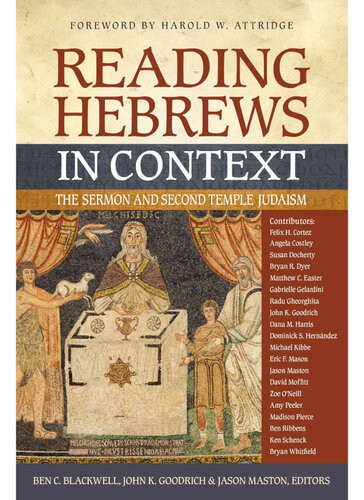

Most ebook files are in PDF format, so you can easily read them using various software such as Foxit Reader or directly on the Google Chrome browser.
Some ebook files are released by publishers in other formats such as .awz, .mobi, .epub, .fb2, etc. You may need to install specific software to read these formats on mobile/PC, such as Calibre.
Please read the tutorial at this link: https://ebookbell.com/faq
We offer FREE conversion to the popular formats you request; however, this may take some time. Therefore, right after payment, please email us, and we will try to provide the service as quickly as possible.
For some exceptional file formats or broken links (if any), please refrain from opening any disputes. Instead, email us first, and we will try to assist within a maximum of 6 hours.
EbookBell Team

4.4
12 reviewsStudy Hebrews in its Second Temple Context
Following the proven model established in Reading Romans in Context, Reading Mark in Context, and Reading Revelation in Context, this book brings together a series of accessible essays that compare and contrast the theology and hermeneutical practices of the book of Hebrews with various early Jewish literature.
Going beyond an introduction that merely surveys historical events and theological themes, this textbook examines individual passages in Second Temple Jewish literature in order to illuminate the ideas and emphases of Hebrews' varied discourses. Following the rhetorical progression of Hebrews, each chapter in this textbook:
In addition to the focused comparison provided in the essays, Reading Hebrews in Context offers other student-friendly features that help them engage broader discussions, including an introductory chapter that familiarizes students with the world and texts of Second Temple Judaism and a glossary of important terms. The end of each chapter contains a list of other thematically-relevant Second Temple Jewish texts recommended for further study and a focused bibliography pointing students to critical editions and higher-level discussions in scholarly literature they might use to undertake their own comparative studies.